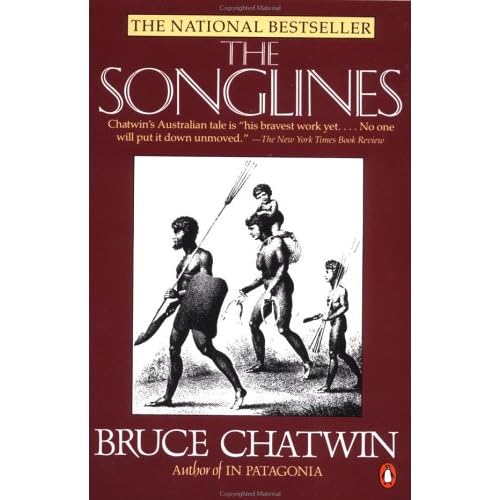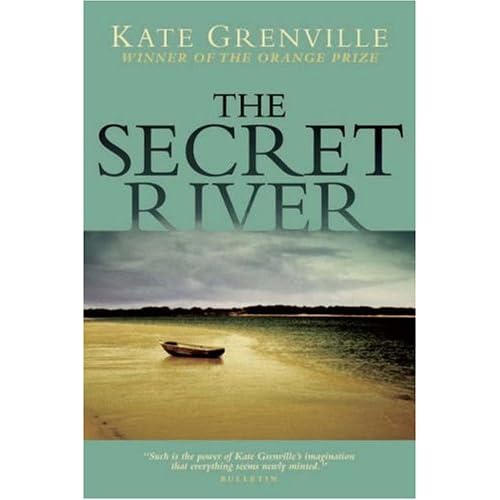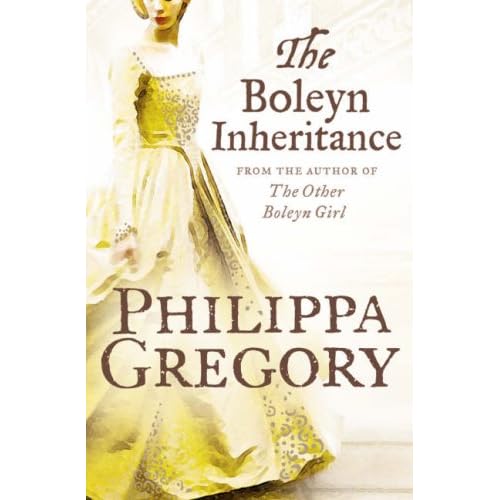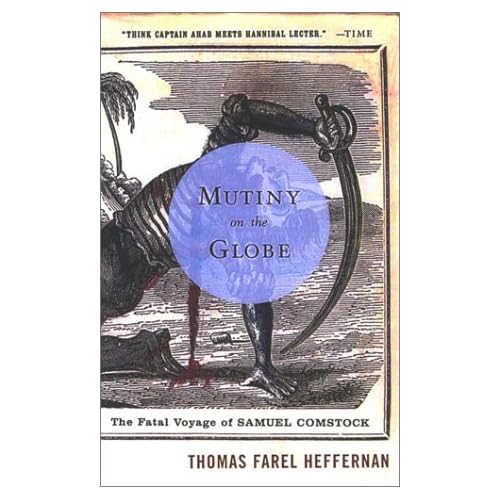Everyone knows that the new year really starts in September, when the new academic year begins. There is no reason for me to feel this way anymore, given that I haven't taken an academic course of any kind since 1992, but I still get restlessness around this time of the year. Maybe it's a way of fending off the approaching darkness and cold of winter, maybe it's just that, apart from the two-week trip to Canada, I went nowhere and saw nobody all this dismal summer long. I don't know.
In any case, I have made New Year's resolutions for the academic year 2007-2008. I've bought tickets to things in the Dublin Theatre Festival, for a start. I said last year that I wasn't going to do this again, because things then start to happen which prevent me from going to the events for which I have booked tickets, but then, that's no kind of attitude, so I've bought tickets and I'm going to go (of course, I'm already in trouble with the tickets I've booked for Long Day's Journey Into Night, but that's another story).
I've also booked an Italian course for me and Mister Monkey, which will take me into town every Tuesday night for ten weeks.
And I'm going to Amsterdam.
And we're going to Glasgow.
And we're going to Rome.
It is a busy time, on paper at least. The real challenge will be to actually attend all the things I've paid for.
A blog about dogs and cats, books and television, knitting and sewing, films and music.
Wednesday, August 29, 2007
Monday, August 27, 2007
The chews that ooze? Are you people for real?
Mars have introduced a new sweet. It's part of the Starburst (nee Opal Fruits) range, and is called the Starburst Choozer. First of all, when are we going to get tired of "z" instead of "s" as a signifier for what is young and hip? Second of all, the, um, slightly menstrual quality of the dollop of "ooze" that falls on the man in the ad is enough to turn a person's stomach, and the fact that this is then followed by the policeman sticking his finger in the ooze and licking it off, well, it kind of makes you hope to avoid the ad altogether when you're having your tea.
Finally, the tag line. The chews that ooze? Sores and spots ooze. Dead union members strapped to radiators ooze. Sweets shouldn't ooze. It's not right.
Finally, the tag line. The chews that ooze? Sores and spots ooze. Dead union members strapped to radiators ooze. Sweets shouldn't ooze. It's not right.
The world's worst icecream man
The weather forecast had suggested that yesterday might be a nice day, so our friends R and D and their children came out to visit us. In the end, the weather wasn't that great, but we went down the beach anyway, and for a couple of hours we were those people you see in old photos of Blackpool and Bournemouth and Courtown, standing on the beach in our sunglasses despite there being no evidence of sun.
A developed this great game with me where he scooped muddy sand out of one of the little streams along the beach and presented it to me as icecream, but right before I took it in my hand, he would throw it on the ground. This worked out well for me, as it goes, because it meant I didn't actually have to eat the icecream, and we got to shout at each other for a while, which kids love (even if their parents hate it. I am a bad influence).
We also brought Milo and Cody with us, and A held Milo's lead all the way down and all the way home again. I was very proud of both A and Milo. Milo walked politely beside A, didn't try to pull him, and periodically checked back to make sure we were close behind. A held the lead, told Milo to wait when we got to roads to be crossed (which Milo actually did) and patted Milo on the head when he was good. He is a born pack leader. Which is good, because he has no future in retail at all.
A developed this great game with me where he scooped muddy sand out of one of the little streams along the beach and presented it to me as icecream, but right before I took it in my hand, he would throw it on the ground. This worked out well for me, as it goes, because it meant I didn't actually have to eat the icecream, and we got to shout at each other for a while, which kids love (even if their parents hate it. I am a bad influence).
We also brought Milo and Cody with us, and A held Milo's lead all the way down and all the way home again. I was very proud of both A and Milo. Milo walked politely beside A, didn't try to pull him, and periodically checked back to make sure we were close behind. A held the lead, told Milo to wait when we got to roads to be crossed (which Milo actually did) and patted Milo on the head when he was good. He is a born pack leader. Which is good, because he has no future in retail at all.
Sunday, August 19, 2007
Kitten sadness

We recently experienced a kitten tragedy here in the Monkey House. The lovely ginger kitten who was going to go and be Dweezil's special friend died. I was putting eye drops in his eye and he squirmed away from me and fell on the floor. On the way down, he hit his head off the edge of a box, and by the time he got to the floor he was spasming frantically and was clearly not well; he died within a few minutes.
Looking back on it from the relatively safe distance of a few days, I realise that for all that I make fun of Mister M and his freakish inability to cry, it is a useful skill to have in a situation like this. I, on the other hand, go completely to pieces.
I mean, I know he was just a kitten and not a person or anything, but it was pretty awful.
In good kitten news, though, Rory is a little trouper. She's sweet and affectionate and fun. A good kitten catch.
Thursday, August 16, 2007
Washer toss
In a recent post, Queenie describes some games of washer toss that we played in her back garden while on holidays. Washer toss is a great game, for many reasons.
One: It requires some special equipment that you can't necessarily just throw together yourself (i.e. something more complicated than just a ball, or just drawing a chalk line on the ground) so the game has a sense of occasion to it.
Two: It can be played in various states of inebriation, by people of both genders, of all ages, and of varying levels of fitness.
Three: It invites, and indeed practically requires, trash talking of the opposition in order to put them off their stride. In this regard it has one great advantage over other games, which is that the person who stands beside you throughout the game is a member of the opposition, allowing your trash talking to be as subtle as you like.
Four: It combines elements of skill and the absolute flukiness usually associated with darts or poker.
Five: The ground you're playing on doesn't need to be level, or grass, or in any particular condition, as long as you've got a clear shot between the two boxes.
It's a great game. You should all play it. There's a nice man in Nova Scotia you can order your sets from, I understand.
One: It requires some special equipment that you can't necessarily just throw together yourself (i.e. something more complicated than just a ball, or just drawing a chalk line on the ground) so the game has a sense of occasion to it.
Two: It can be played in various states of inebriation, by people of both genders, of all ages, and of varying levels of fitness.
Three: It invites, and indeed practically requires, trash talking of the opposition in order to put them off their stride. In this regard it has one great advantage over other games, which is that the person who stands beside you throughout the game is a member of the opposition, allowing your trash talking to be as subtle as you like.
Four: It combines elements of skill and the absolute flukiness usually associated with darts or poker.
Five: The ground you're playing on doesn't need to be level, or grass, or in any particular condition, as long as you've got a clear shot between the two boxes.
It's a great game. You should all play it. There's a nice man in Nova Scotia you can order your sets from, I understand.
Wednesday, August 15, 2007
Linking places and books
The Secret River and The Songlines will always be linked in my mind with the holiday in Halifax on which I read them. I'm sorry now that I didn't take a picture the day we were in the Paperchase coffee shop and the heavens opened to douse Halifax in some of the heaviest rain I've ever seen. The windows were open and we sat in comfortable chairs, watching the rain, watching the other customers watching the rain, listening to some eejits prattling on about jobs in the media (but coded looks between myself and Queenie managed to shut their asses up fast), watching some shifty-looking bloke who looked very much like he was about to start robbing things any minute, and, crucially, reading. We had just been to the cavernous second-hand bookshop that is Doull's, where I had picked up, hey! who would have guessed? a book about the whaleship Essex. That's where I got The Songlines as well.
It's not always bad when it rains on holidays.
It's not always bad when it rains on holidays.
The Songlines

It turns out that if you suggest to Mister Monkey that you would be interested in reading a book about Australian Aborigines, he thinks you should read Bruce Chatwin's The Songlines. He is not alone. I'm here to tell you, however, that if you read this book because you want to learn about Aboriginal culture, you'll be disappointed. If, on the other hand, you are reading it because you want to read a book in which a man tries very hard to make sense of the living conditions of some people who refuse to fit in with the reality that's been forced upon them, and also tries to construct a grand theory of travelling, you will be enlightened and find much enjoyment.
The book, which was written in 1987, tells the story of Chatwin's attempt to learn about Aboriginal songlines by going to Australia and meeting with leaders of Aboriginal groups. During his stay, he is trapped by bad weather on a reservation for some time and goes through his notebooks to try, it seems to me, to come up with an explanation for why people like walking, and why people (in particular Westerners) seem to be so hell-bent on forcing their realities onto other cultures. Originally when I was reading this, I tried to explain away these disjointed fragments of personal recollection and anthropological theory as Chatwin's attempt to sing his own songline, but now I'm not sure. I could imagine that you would, having spent time in the company of Aborigines, try to construct a romantic history of your own. Who is not seduced by the idea of these people, living the same way for 20,000 years, living through songs and stories and hunting and taking only what they need from the land around them? You'd have to be a hard person not to fall in love with words and concepts like Dreamtime and Dreaming, or the idea of having your own songline. Of course you'd love to have something like that for yourself.
I have to conclude, though, that it really was a grand theory of walking he was after in the muddled middle section of the book. The ever-useful Queenie, who has read Nicholas Shakespeare's biography of Chatwin, told me that Chatwin wrestled with that section of the book for over a year, and finally had to let it go as it was because he couldn't hammer it all into a single coherent strand. I think, if you read Jared Diamond, you might find some of the legacy of Chatwin's attempts in there.
Outside the section on walking and travelling, Chatwin's own experience in Australia are amazing. I won't tell you any of them, but if you ever read about the romance of kangaroo hunting and think "I'd like to do that", I think you'll be surprised to see what's changed about it.
By the way, I would still like to read a comprehensive book about the Aborigines, if anyone knows one.
The Secret River

On holidays at Queenie's place, I read this book by Australian writer Kate Grenville. Queenie recommended it to me from her personal stash (in fact, she more than recommended it to me, she left it on the shelves in the room where Mister Monkey and I were sleeping, such is her attention to guest comfort details). It's a fine piece of historical fiction about a Thames boatman who commits a crime and is transported to Australia.
It's got some great elements of the best historical fiction in it. First, it's got lots of stuff about boats and rivers and the sea in it. Second, it is, as far as I can remember the details of Robert Hughes's The Fatal Shore, pretty historically accurate. And third, it takes its mission as fiction more seriously than its mission as history; it follows the rough outline of the typical journey of the transported convict, but refrains from having the protagonist commit a crime once he gets to Australia, which would, of course, have seen him sent to Van Diemen's Land. You can tell at one point that she was thinking about it, because she talks about it almost longingly, but she steers away from it in the long run and heads for the more straightforward story of just exactly what was required of people to become successful in Australia in those days. It wasn't pretty.
In a weird way this book reminds me of Little House on the Prairie with its details of everyday life on the frontier, grubbing a living out of harsh lands, living hand to mouth. However, I don't think Laura Ingalls ever had to see the things that these people had to see. It's the first book I've ever read that came close to providing an explanation of just how people from Britain were willing to come across the sea and, frankly, slaughter a bunch of people who were just minding their own business in their own home. Desperation is a powerful thing.
The Boleyn Inheritance

This is the book where Philippa Gregory talks about Anne of Cleeves and Katherine Howard. Yet again, we see how shit it was to have to spend your time sucking up to Henry VIII (I have no idea how men managed to do this, it's not like they could pretend he was fabulously good-looking) and how all round rubbish it was to be a woman around this time.
I knew nothing about Anne of Cleeves or Katherine Howard before I read this, and I'm kind of assuming I'm in good historical hands with Gregory, so it is with some confidence that I can express amazement that Henry got away with this shit for the few years that he did. After he divorced Katherine of Aragon and then executed Anne Boleyn, he seems to have gone mental and more or less chewed women up and spat them back out again on a kind of conveyor belt. It didn't help that he was getting older and fatter and less able to hold up his end of the bargain as each wife went by, nor that his succession was so contentious that that everyone with an interest in the future of the kingdom appeared to be chucking women at him.
My respect for Anne of Cleeves is colossal, as it was for Katherine of Aragon. These were women who could easily have run countries in their own right (I'm not sure I'd necessarily have given Jane Seymour or Katherine Howard such a task), and Anne of Cleeves even managed an amicable divorce from the old git. Good for her.
Mutiny on the Globe

Narrative histories about whaleships, mutinies, and shipwrecks are ten a penny, and this one has elements that are familiar to those who've read other ones. Crazy guy thinks he can set up his own society but needs a ship's crew to get him to the right location, then, once he gets there, he kills everyone who's not in on his plan. Gradually, however, he ends up having to kill more and more people in a Richard III stylee.
This book has those elements.
What makes it interesting is what happens after the mutiny is over, which is that the ship fecks off, and two guys are left on an island in the middle of the Pacific with some potentially hostile natives. The book tells the story of how they were, essentially, kept as slaves by the people who lived on the islands, and how they lived there for several years before eventually being rescued by the U.S. Navy. It makes a nice change from being cast adrift in a rowboat and having to eat their shipmates, I suppose, but it does seem to have been incredibly hard work, especially as they could never really be sure they weren't going to be killed, and they were separated from each other almost all that time.
Tuesday, August 14, 2007
Ringworm!
Ringworm is one of those fun things that if you probably never have to cope with if you are not a) a parent b) a farmer c) a vet or d) someone who gets pets from rescues. Given that I fall firmly into category d), our house has ringworm again. It hasn't been vet confirmed yet, but ginger kitten is showing all the signs: he's got little raised scabs on the back of his neck and his hair is starting to fall out.
Annoyingly, we've run out of quarantine rooms, which means we have no way of separating him from Rory for the duration of the treatment (usually a month), so she'll probably get it too if she hasn't got it already. Luckily it's not very bad, and he is small enough to be wrestled into a bath, so we might not have the six-week ordeal that we had with Linus and Lucy or the four-week misery fest that was Killick's battle with ringworm. His was so bad that Mister M caught it from him.
Unluckily, it does mean another month of being careful about keeping an airlock between the kittens and the other house animals at all times, vaccuuming the house every day, changing my clothes every time I move between the kittens' room and the rest of the house, and having a shower every time I leave them.
It's a good thing they're cute.
Annoyingly, we've run out of quarantine rooms, which means we have no way of separating him from Rory for the duration of the treatment (usually a month), so she'll probably get it too if she hasn't got it already. Luckily it's not very bad, and he is small enough to be wrestled into a bath, so we might not have the six-week ordeal that we had with Linus and Lucy or the four-week misery fest that was Killick's battle with ringworm. His was so bad that Mister M caught it from him.
Unluckily, it does mean another month of being careful about keeping an airlock between the kittens and the other house animals at all times, vaccuuming the house every day, changing my clothes every time I move between the kittens' room and the rest of the house, and having a shower every time I leave them.
It's a good thing they're cute.
Tuesday, August 07, 2007
Phear it part two for today
Phear it!

We have a new kitten. We decided when Dweezil was here on his holidays last week that really it's better if Linus has company, especially when we have to put him into kennels or anywhere like that. So I contacted a pet rescue lady and lo and behold, we have a new kitten.
She is approximately 12 weeks old and at the moment is upstairs in my office with her little friend, who is going to be the new kitten for Dweezil to be friends with in his house, but they have an eye infection so we're minding them both here. Our kitten is called Rory, and she is a long-haired tortoiseshell. I am trying very, very hard not to fall in love with her (mainly in case she turns out to be a prick), but it's very hard when she keeps licking my arm really hard to make milk come out of it (I assume that's what she's doing. It's hard to tell with cats) and just being absolutely the most beautiful cat that I, personally, have ever owned.
She could be a prick, though. It's too early to tell.
Subscribe to:
Posts (Atom)

